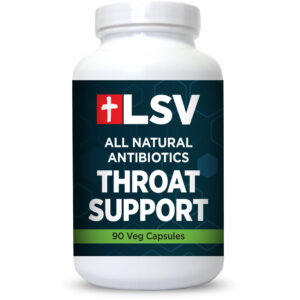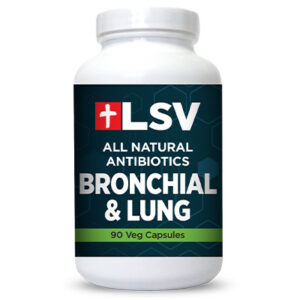Our Company
LSV
SINCE 1992
Founded in 1992, in Winter Park, Florida – LSV Vitamins has been the leader in All Natural Antibiotic supplement sales for over 30 years in the United States.

Turmeric, the vibrant yellow spice that graces countless dishes worldwide, has a rich history in traditional medicine. Used for centuries to treat various ailments, turmeric is now captivating the interest of modern science, particularly for its potential anti-inflammatory properties. While not a cure-all, turmeric offers a promising glimpse into natural approaches to managing inflammation.
The golden hue of turmeric stems from curcumin, its most studied bioactive compound. Curcumin is believed to be the key player behind turmeric’s anti-inflammatory effects [1]. Studies suggest curcumin works by targeting multiple inflammatory pathways in the body. It may downregulate the production of inflammatory molecules like cytokines and enzymes, ultimately reducing inflammation [2].
Research on turmeric’s anti-inflammatory properties is ongoing, with promising results for various conditions:
While the research on turmeric’s anti-inflammatory properties is encouraging, there are limitations to consider:
Turmeric holds promise as a natural approach to managing inflammation. However, it’s crucial to remember that it shouldn’t be seen as a replacement for medication prescribed by a doctor.
If you’re considering using turmeric for inflammation, talk to your doctor first. They can advise you on appropriate dosages and potential interactions with medications you’re taking. Turmeric can be incorporated into your diet in various ways, such as adding it to curries or smoothies. Additionally, curcumin supplements might be an option, but consult your doctor for guidance.
Research on turmeric’s anti-inflammatory properties is ongoing, and future studies may shed more light on its effectiveness and optimal use. As science progresses, turmeric may become a valuable tool alongside conventional therapies for managing inflammation.
LS Vitamins – Since 1992
See All of our effective All Natural Products Here
All Natural Antibiotics Cold & Flu
All Natural Antibiotics Sinus Support
All Natural Antibiotics Teen Support
All Natural Antibiotics Tooth & Gum
All Natural Antibiotics Bronchial & Lung Support
All Natural Antibiotics Throat Support
For Over 30 Years, we have 3rd Party Tested each and every nutrient that go into all of our products: Purity & Effectiveness is how are product continually works for Tens of Thousands of our Customers.
By no means are we at LSV Vitamins saying do not take what your doctor prescribes, we are just saying that we have an alternative for those who cannot take Antibiotics, afraid one of the many side effects, or simply want to try an all-natural alternative. We have a large number of people (over 100,000) who take and have taken this at the first sign of a problem, and it works well. As always, consult your doctor.
Studies Referenced:
*Disclaimer: None of the above statements have been evaluated by the FDA. These products are not intended to diagnose, treat, cure or prevent any disease. As always, consult your physician before taking any supplements. LSV. Individual results may vary.
 Throat Support - Natures Antibiotics
Throat Support - Natures Antibiotics
 Bronchial & Lung Support - Natures Antibiotics
Bronchial & Lung Support - Natures Antibiotics
LSV
SINCE 1992
Founded in 1992, in Winter Park, Florida – LSV Vitamins has been the leader in All Natural Antibiotic supplement sales for over 30 years in the United States.